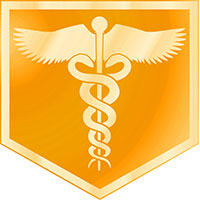- Home
- What is cancer ?
How do we treat cancer?
Treating a cancer depends on what tissue the original cancer arose from (breast or colon for example) and if the disease is advanced (metastatic) or localized. Frequently localized cancers can be treated with surgery or radiation to completely resect the cancer or blast the cancer with radiation to kill all the cancer cells. In such cases, surgical resection or definitive radiation can sometimes be curative. However, as is described in our what is cancer section, sometimes cancer cells can migrate away from the original site of the cancer - but if they have not created a large enough cancer/tumour (metastasis) somewhere else, these cells that have migrated away may not be visible on imaging such as CT scan, MRI or PET-CT. If a doctor is concerned some of the cells may have migrated away from the original cancer site before surgical resection or definitive radiation they may suggest the patient undergo systemic treatments (see below) to try and kill off any remaining cancer cells in the body and increase the chance of cure.
When cancers are more advanced and in particular if they are metastatic, surgery and radiation may be helpful but are frequently not capable of curing the patient. This is when systemic therapies (treatments that can go everywhere) in the body are needed.
Such systemic treatments are described below:
Standard Chemotherapy:
Standard chemotherapy were the first systemic treatments against cancer. They are medications that are frequently given IV. They tend to attack any and all cells that divide rapidly. The cells that make your hair and nails as well as the cells that make up your stomach lining and your blood cells are frequently dividing. This is why hair loss and nausea and vomiting are frequently associated with standard chemotherapy treatments. Also because the blood cells are affected, patients can have their white blood cells of their system reduced quickly. These white blood cells help fight infections and when reduced significantly patients can develop infections with fever. This is a clinical condition referred to as febrile neutropenia (fever with low white blood cells) - this is a medical emergency and requires emergency consultation.
Despite standard chemotherapy having quite a few side-effects and having a limited roll in helping patients with some types of cancers, standard chemotherapy has led to almost 80-85% cure rates in childhood acute lymphoblastic leukaemia , 90% cure rates in testicular cancer and 80% cure rates in Hodgkin’s lymphoma. It has also played an important role in the 70-80% cure rates seen in breast cancer and has had an important impact in colon cancer as well.
Targeted Therapy:
Targeted therapy are medications that are frequently administered as oral pills and have been designed to try and attack the cancer cells directly and leave normal non-cancerous cells alone. They tend to have different side-effects than standard chemotherapy which can include rash, diarrhea and hypertension. Some targeted therapies that have made a huge difference in the cancer world include BCR-ABL tyrosine kinase inhibitors which have virtually cured chronic myelogenous leukaemia (CML), B-Raf inhibitors in melanoma and EGFR and ALK inhibitors in lung cancer. Although not a cure in the melanoma and lung cancer settings, these drugs can have a major impact on the disease, allowing patients to live much longer and with a much better quality of life than if treated with standard chemotherapy.
Targeted Immunotherapy:
Targeted Immunotherapy are antibodies that are produced against a target on the surface of the cancer cell. When these antibodies bind to the cancer cells, the cancer cells are eliminated. Given they are quite specific for the cancer cells, normal cells are frequently left alone. Side effects from these antibodies are minimal but can include allergic reactions, reversible heart failure and also rarely re-activation of hepatitis B. Two common drugs in this group include Rituximab and Trastuzumab. Rituximab has significantly improved the prognosis in many patients with lymphoma and Trastuzumab has significantly improved the outcomes in some forms of breast cancer.

Immunotherapy:
Every human being develops tumours in their life-time. Tumours can be thought of as pre-cancers to some extent - although the vast majority will never develop into full blown cancers. The cells are dividing and growing in one spot but the cells have not developed the ability to spread yet to other areas of the body. Often the immune system can eliminate these tumours before they become a cancer. In some situations however, as the tumour transforms into a cancer, the cancer may develop the ability to evade the immune system.
Immunotherapy uses medications (frequently intravenous antibodies) to wake up the immune system and direct the immune system to attack the cancer. Side effects of immunotherapy occur when the immune system decides to attack not only the cancer but normal tissues too. The immune system may activate against the patient’s thyroid or liver or lungs. Usually these side effects are mild and can be controlled but rarely they can be very serious and even fatal. Immunotherapy is one of the newest forms of systemic cancer treatment. It has had a huge impact in the prognosis of patients with melanoma and has also had an important impact in patients suffering from lung cancer, renal cancer and bladder cancer.
 WHAT IS CANCER ?
Why is cancer so difficult to cure?
WHAT IS CANCER ?
Why is cancer so difficult to cure?
